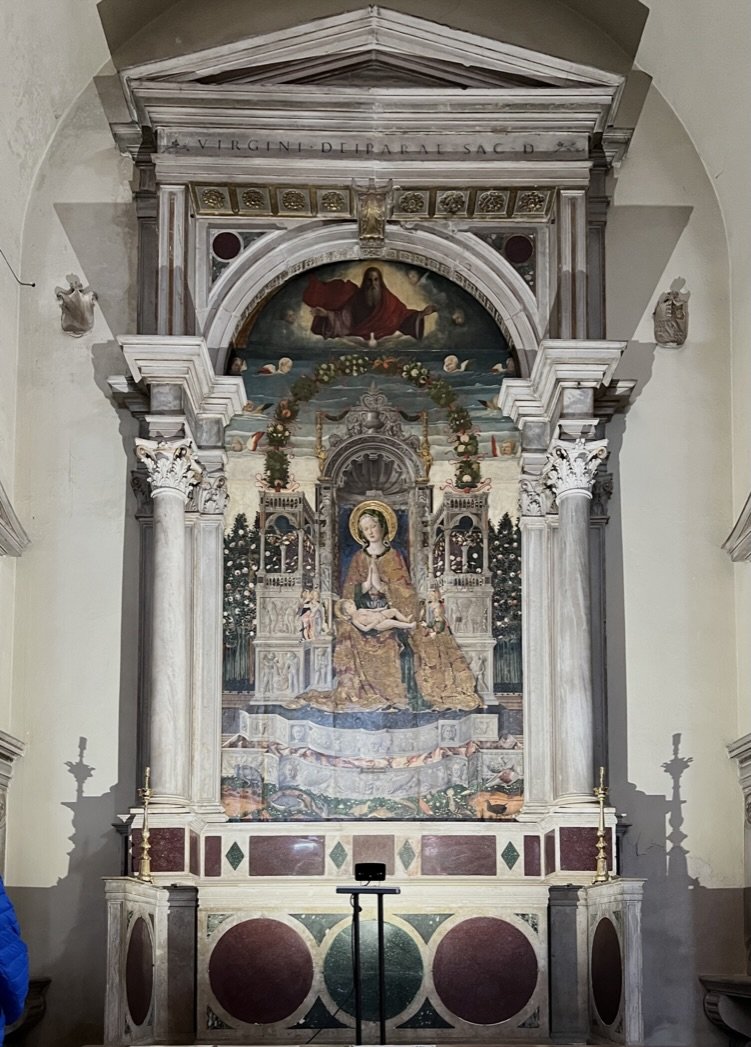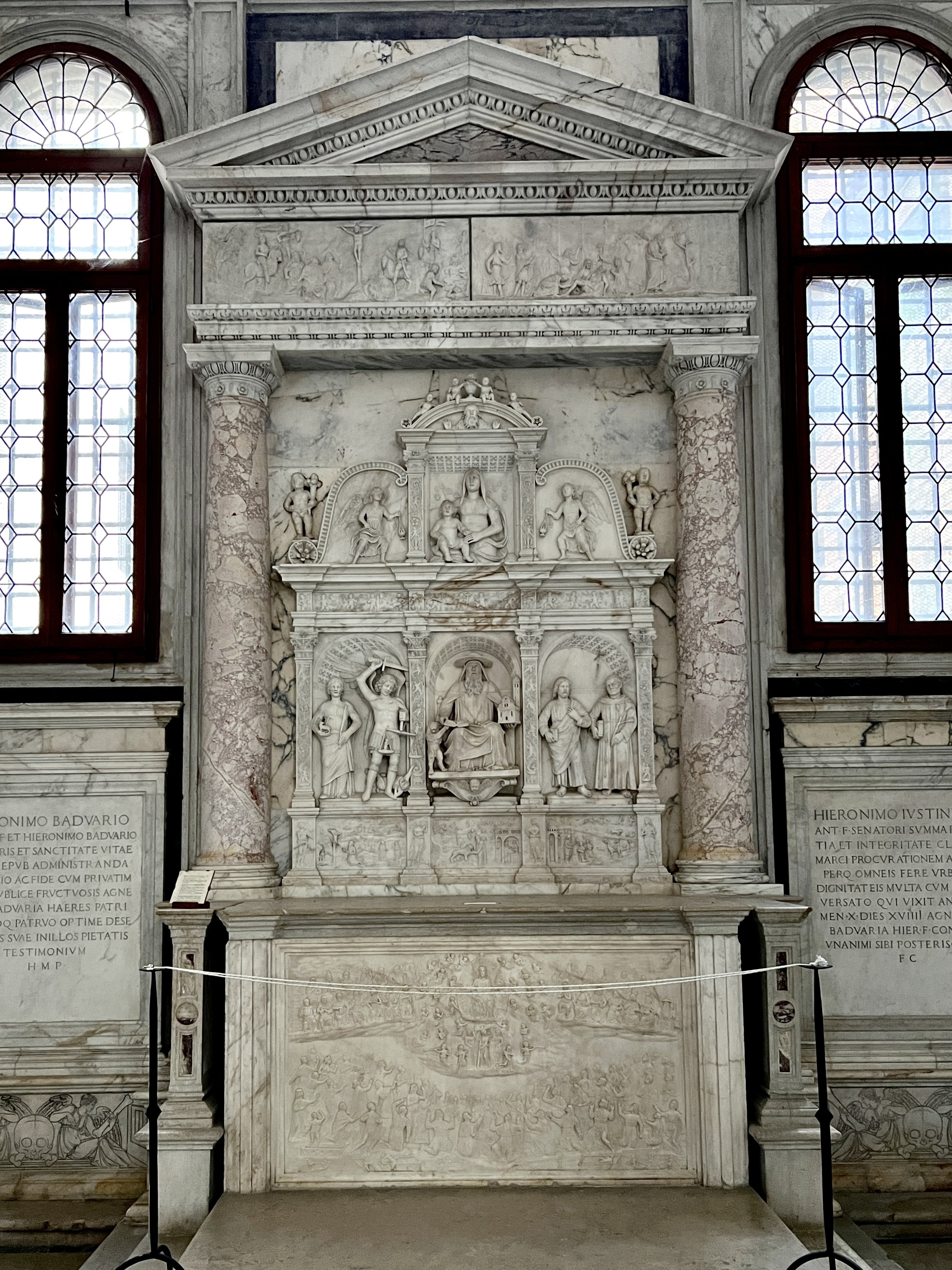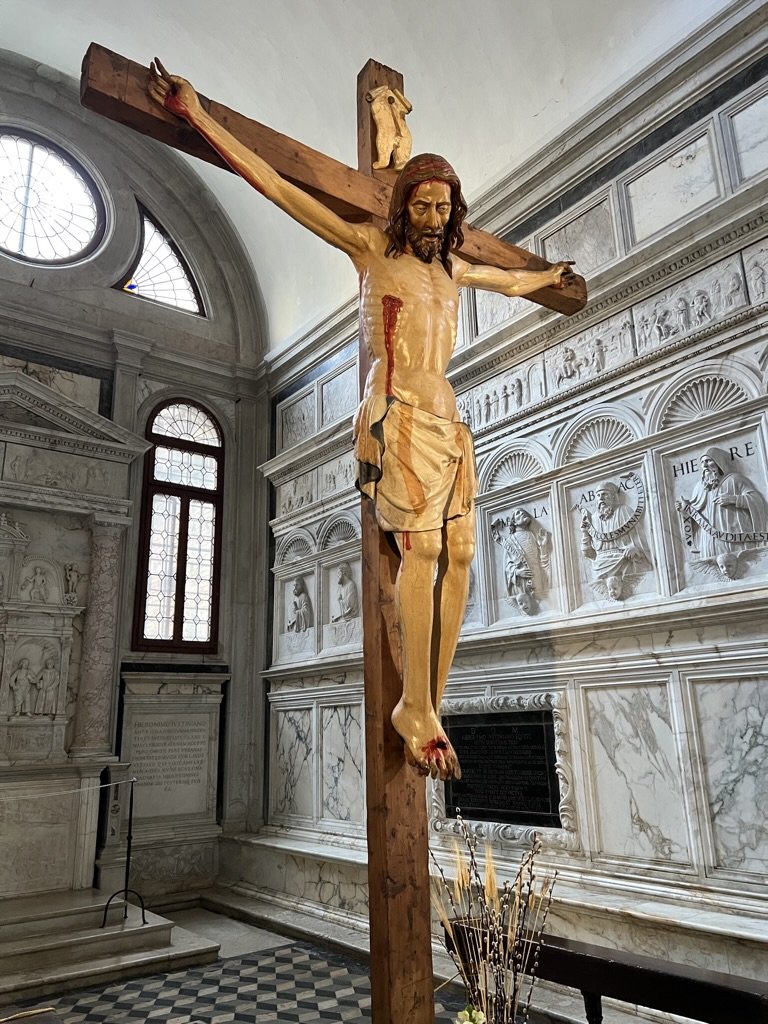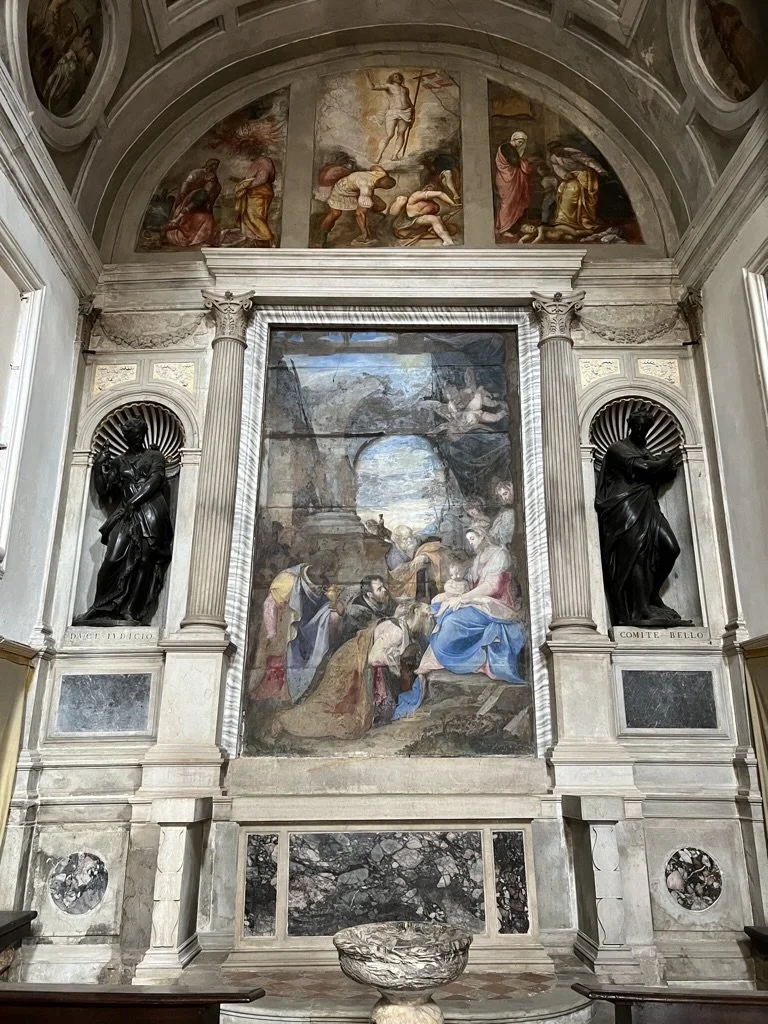San Francesco della Vigna
3 March 2023
This is the first church commission completed by Andrea Palladio. It’s built at the place where St Mark is said to have been driven ashore by a storm, where an angel said to him “Pax tibi Marce evangelista meus” (Peace unto you Mark, my Evangelist”, the motto of Venice), “Hic requiescat corpus tuum (Here may your body rest), adding ‘The city that shall rise on these lagoons will call you its protector'
During the renaissance, when architects started adapting Roman forms to churches, they faced a design challenge. One Roman model which they used was the temple, but churches also had aisles along both sides which were lower than the nave. Roman temples did not have this feature. Early solutions to the problem involved filling in the space on the facade with volutes, as seen in the Gesù in Rome.
In Venice, Mauro Codussi put semicircular quadrants over the side bays, to match the semicircular pediment over the central one, as seen at San Michele in Isola or San Zaccaria.
Palladio’s solution was to superimpose two temple fronts, with a taller one in the middle, and a lower and wider one that corresponded to the side aisles. We can see this elegant solution at San Francesco della Vigna, which is the first church commission that he completed. It looks very “Roman” in a way which earlier churches do not.
The site is somewhat constrained and I couldn’t get a complete picture of the facade due to the building in front of it.
Facade of San Francesco della Vigna
Another view of the facade
The campanile, modelled on the one in the Piazza San Marco, is one of the tallest in Venice. In the past I’ve certainly mistaken it for the one in the Piazza when seen from a distance.
The interior, by Sansovino, is possibly the earliest Venetian renaissance interior.
View of the nave, looking towards the high altar
Lots to see inside, of which here is a selection:
A Resurrection by Paolo Veronese (1560)
And here is a striking Madonna and Child Enthroned by Antonio Falier da Negroponte (active c. 1450s-70s). It’s artist’s only known painting. More details in the web page of Save Venice, who funded the restoration in 1976.
The Badoer Giustinian chapel with exquisite sculptures by Pietro, Tullio and Antonio Lombardo. Restoration funded by Save Venice (more details on their website).
The Badoer Giustinian chapel, detail
The Badoer Giustinian chapel, detail
The Badoer Giustinian chapel, detail
The Badoer Giustinian chapel, detail
The “Talking Christ” crucifix, now in the The Badoer Giustinian chapel, is so called because it once had a movable tongue, now lost, which could be manipulated by a cord, and a cavity from which smoke could be puffed, to simulate christ talking. For more details see the website of Save Venice , who also funded its restoration.
Sagredo Chapel. Pictures in the pendentives and roundels by Giambattista Tiepolo. Fresco on dome by Girolamo Pellegrini.
In thre Capella Santa, there’s an altarpiece by Giovanni Bellini
Virgin and Child with Four Saints and a Donor, Giovanni Bellini (1507)
A locked gate bars the entrance to the Grimani Chapel. Looking through it I could see an Altarpiece with the Adoration of the Magi, by Franco Battista. Restored by the sister international committees of the British charity Venice in Peril in memory of its founder Ashley Clarke (1903 - 1994). (ref VIP 2016)
Vines are cultivated in the cloister of the church, originally for consumption by the friars. In 2019, the Santa Margherita winery started marketing wine from the vineyard, sold under the label Harmonia Mundi. I couldn’t find it in their website but this article and this one, both from 2022 indicate that the wine is in production.
References
Venice. An Architectural Guide. Philip Goy. Yale University Press 2010. Amazon
Save Venice and Venice in Peril (links in text)





















